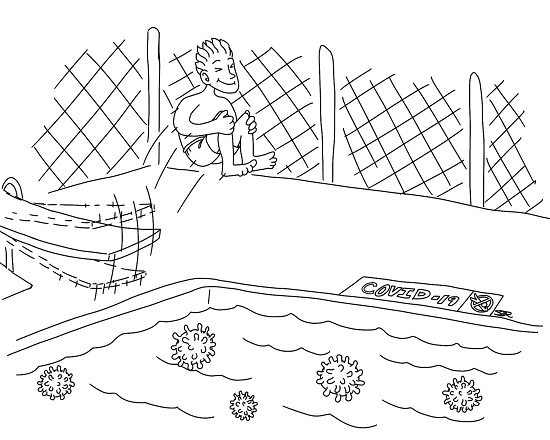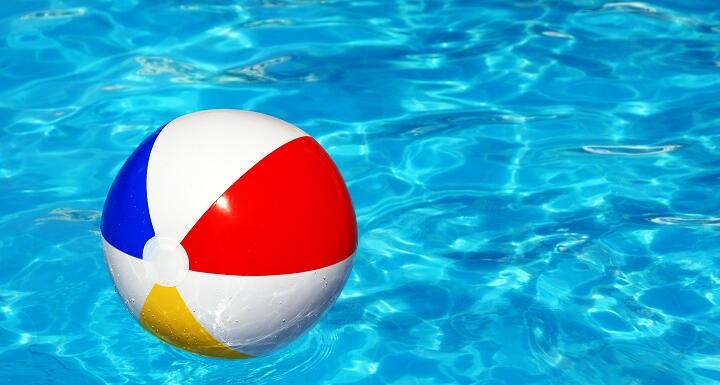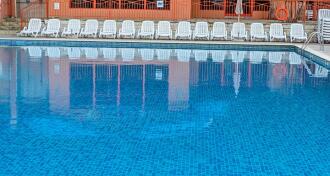Ed. Note: On May 21, The NC Department of Health and Human Services issued Interim Guidance for Public Pools and Spas. See our coverage of this most recent guidance here.
State and local governments are beginning to phase out or entirely lift COVID-19 restrictions.
With spring in the rearview mirror and summer dead ahead, community association boards and community managers are feeling pressure to open their aquatic amenities, including pools, splash pads, and hot tubs as soon as possible.
It is important, however, that they refrain from doing so until their closure is no longer required by applicable state and local government orders. Even then, decisions regarding when and how to open aquatic amenities should be made after consultation with local health officials and the development of a detailed plan for opening and operating the amenities safely.
Although COVID-19 restrictions have not been fully lifted and recreation facilities such as pools remain closed in North Carolina until May 22 at 5pm, community associations should not wait until they can legally re-open their aquatic amenities to develop a plan as to how they are going to open such facilities in a manner that prevents the spread or resurgence of COVID-19.
The following tips are offered to assist HOA boards and community managers with the development of a detailed plan for safely reopening aquatic amenities.
Authority to Regulate
An Association should review its declaration and other governing documents to determine what authority it has to regulate reopening and use of the community's amenities. Declarations and by-laws typically contain provisions which state that the Association's Board may impose reasonable regulations regarding the use of recreational facilities to insure accessibility, safety, harmony and preservation of the facilities. Provisions such as these give the Board power to establish reasonable rules and regulations to promote behavior that prevents the spread of COVID-19.
 Insurance
Insurance
An Association should also consult its general liability insurance policy, particularly exclusions and endorsements related to Fungi/Bacteria and communicable disease to ascertain potential coverage concerns that could arise in connection with opening aquatic amenities, as well as "expected injury" exceptions. The Association's Board and community manager should understand whether or not the Association's insurance policies will provide coverage for a COVID-19 related claim.
Risk
Whether a COVID-19 claim is covered or not, Associations should take steps to manage and minimize the risks associated with reopening aquatic amenities. The Association should consult pertinent secondary publications available in the public health and aquatics industries. The Centers for Disease Control and Prevention ("CDC") and USA Swimming, to name a few such sources, have both published guidance addressing aquatic safety in the context of COVID-19. They have provided specific guidelines and recommendations to encourage healthy hygiene and promote a safe swim environment which include:
- Collaborating with local public health officials.
- Cleaning and disinfecting frequently touched surfaces daily (e.g. handrails, tables, pool deck chairs and loungers).
- Segregating items that have been disinfected for use from those awaiting disinfecting.
- Spacing out furniture to promote social distancing.
- Discouraging the sharing of pool tables/accessories.
- Encouraging the use of personal water bottles (filled at home) to minimize use of public water fountains.
- Limiting access (could use a first-come, first-serve basis; a reservation's required approach; or a rotation approach).
- Avoiding or limiting group events.
- Monitoring social distancing and capacity constraints.
- NOT assigning lifeguards who are actively lifeguarding responsibility to monitor social distancing. A lifeguard's focus should remain on the task at hand: lifeguarding the pool.
See this link for specific guidance and recommendations published by the CDC, this link for guidance on facility re-opening from USA Swimming, and the Phase 2 Guidance for NC DHHS for Public Pools and Spas.
Communication
When the decision to reopen is made, an Association should post signage reminding those who use its amenities and common areas that COVID-19 public health guidelines applicable in any social context – like covering coughs and sneezes, washing hands, and staying home when symptomatic, have tested positive, or been exposed – should continue to be followed.
The Board should communicate the reopening plan and related rules to the residents and explain the reasoning behind it. If your Association needs legal guidance with regard to preparing a plan for the reopening of your community's aquatic amenities, contact our Community Associations Practice Group.
COVID Pool Art Credit Courtesy of Sarah Remington, used with permission.









